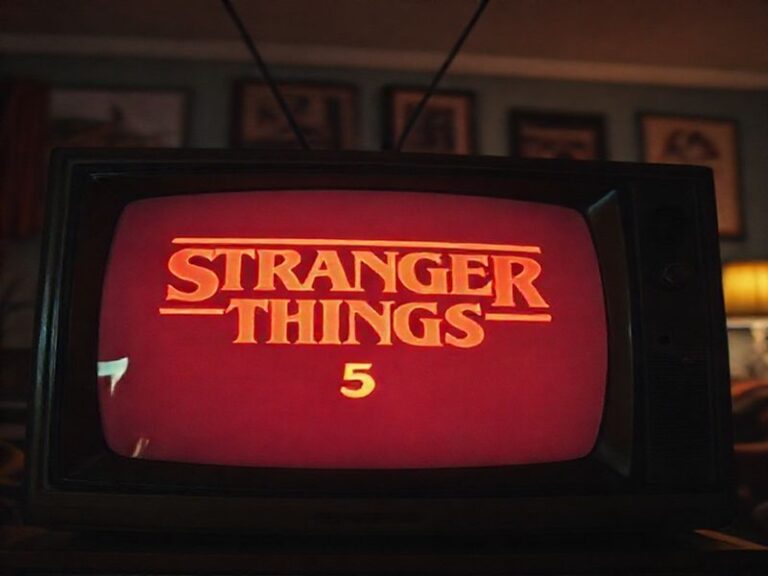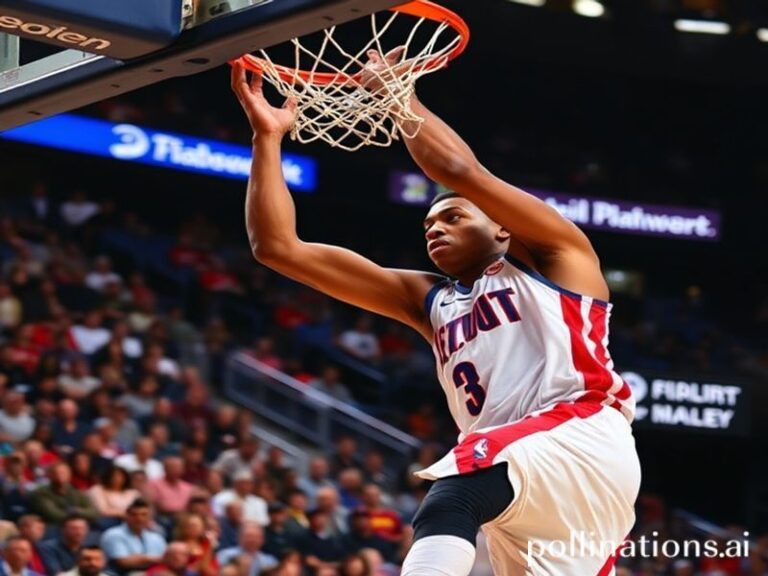From Belfast to Beijing: How Josh Rock Became the World’s Most Unlikely Geopolitical Dartboard
The Geological Rise of a Very Human “Josh Rock”
Global Dispatch – Dave’s Locker
LONDON—Somewhere between the grinding tectonic plates of geopolitics and the sedimentary layers of internet celebrity, a new formation has emerged: “Josh Rock.” At first glance the name sounds like the half-hearted alias of a Bond villain’s henchman, or perhaps the title of a forgotten prog-rock album recorded in a Norwegian fjord. In reality, it is the improbable handle of a 27-year-old darts prodigy from Northern Ireland whose ascent is being monitored by seismographs of social-media schadenfreude from Reykjavík to Riyadh.
That a soft-spoken man who throws pointy missiles at a wall-mounted corkboard can now rattle global betting markets is, on the surface, absurd. Yet so is the fact that TikTok dances determine foreign-exchange volatility, or that a tweet from a billionaire can reroute container ships. In the grand carnival of late-stage capitalism, Josh Rock is simply the latest sideshow promoted to main stage, complete with walk-on music that sounds like a rejected Eurovision entry and a nickname—“Rocky”—so uninspired it could only have been coined in a marketing meeting fuelled by lukewarm lager.
International bookmakers report that wagers on Rock’s matches now outnumber those on several Serie A fixtures. In Manila, call-center agents moonlighting as micro-influencers live-tweet his double-tops; in São Paulo, insomniac traders hedge Brazilian Real positions against his checkout percentage. The World Darts Federation, once a cosy pub-club circuit with all the glamour of a damp dartboard in a Leeds working-men’s club, has become a geopolitical micro-laboratory. Delegates who once argued over beer sponsorship now whisper about “soft power projection” and “youth engagement metrics.” One delegate from Singapore was overheard comparing Rock’s 108.32 three-dart average to Singapore’s GDP growth—both impressive, both slightly meaningless.
The China angle, naturally, is unavoidable. State broadcaster CCTV recently aired a subtitled highlight package titled “Precision Under Pressure: Lessons for Our Manufacturing Sector.” Within hours, Alibaba’s algorithm began pushing limited-edition tungsten darts engraved with Rock’s signature—though the signature looked suspiciously like the Chinese character for “profit.” Meanwhile, European pub landlords, sensing an existential threat to their smoke-stained sanctuaries, have petitioned Brussels to classify darts as “intangible cultural heritage” before it gets gamified into a Tencent app.
Rock himself remains diplomatically opaque. When asked by a Dutch journalist whether his success proved the superiority of Northern Irish composure, he replied, “I just try to hit treble twenty, mate.” That sentence, stripped of nationalist fervor and reduced to its Zen core, is perhaps the most honest statement uttered by any public figure in 2024—refreshing, terrifying, and commercially useless.
The darker undercurrent, because every feel-good story needs one, is the data. Viewing figures suggest Rock’s fanbase skews heavily toward economically anxious males aged 18-34—the same demographic being courted by populist parties on five continents. Analysts at the Rand Corporation, who apparently have nothing better to do, have modeled a hypothetical scenario in which a match-fixing scandal involving Rock triggers a 0.3 % dip in UK retail spending, rippling through global supply chains already strained by Red Sea shipping diversions. Their conclusion: “Improbable but not negligible.” Translation: keep a crate of canned beans handy.
Yet amid the absurdity, a fragile sort of global communion flickers. When Rock nails a 170 checkout, Twitter erupts in a pidgin Esperanto of memes—Finns posting SpongeBob gifs, Nigerians dropping fire emojis, Japanese salary-men bowing respectfully at phone screens. For nine glorious seconds, the algorithmic Tower of Babel unites around a man in a sequined shirt hurling arrows at a circle. Then the feed refreshes, an oil tanker gets hijacked, and we all return to our bespoke dystopias.
So what does the rise of Josh Rock signify on the world stage? Nothing—and therefore everything. In an era when trust in institutions erodes faster than Arctic permafrost, we will latch onto any narrative that still obeys simple Newtonian logic: throw pointy thing, hit target, count backwards from 501. It is a scoreboard even oligarchs cannot rig, at least not yet. And if, in the process, a kid from County Tyrone becomes the unlikely axis around which global capital does a tipsy pirouette, well, stranger idols have been worshipped for worse reasons. Pass the nuts; the next leg is about to start.







